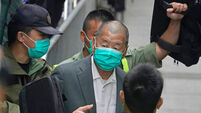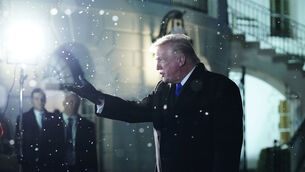Russian attack moves on to two fronts in Georgia
Russia invaded Georgia today sending forces beyond the two breakaway provinces it now controls.
As fighting continued outside South Ossetia, Russian armour created a second front, moving out of the western region of Abkhazia to capture a nearby town.














